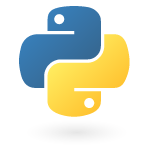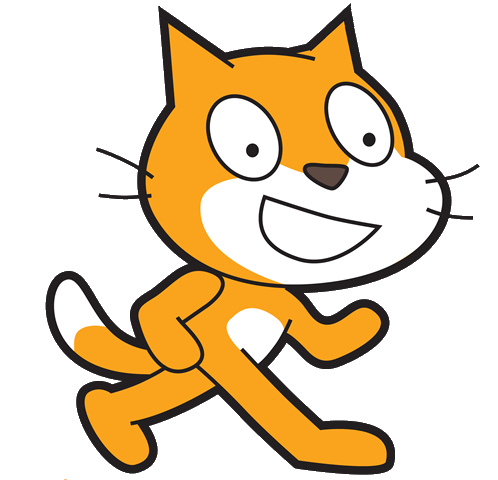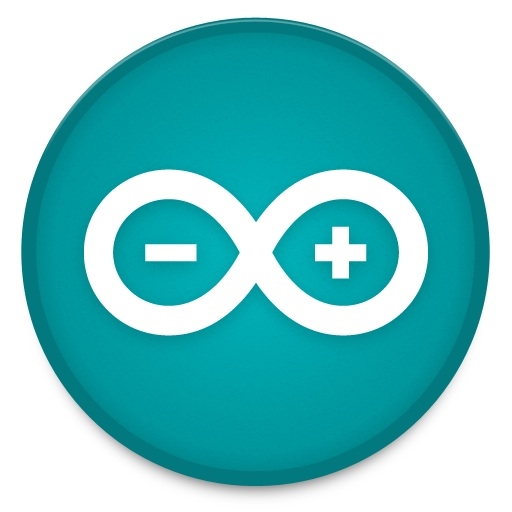Course Details
Textbook
|
How to Think Like a (Python) Programmer by Allen Downey, 2007 Olin College, MA This textbook is open-source; I have reorganized and edited it to match our course syllabus. |
Software and Hardware
 |
 |
 |
 |
| Python | Scratch | Arduino | App Inventor |
This class is BYOL. Bring a laptop computer to class with you every day, unless there is a test. I have a small number of computers available for students who are unable to do so. We will do programming exercises every class period.
Overview
Introduction to solving computational problems, including the fundamentals of computer programming. Topics include imperative programming constructs (variables, loops, conditionals, functions, recursion), basic object-oriented constructs (classes, objects), and some fundamental algorithms and data structures (dictionaries, arrays, linked lists, basic sorting). Student learn these concepts through studying the Python programming language.At the end of the course, you will be expected to be able to:
- Read, understand and execute a computer program written in Python.
- Read a set of requirements for a computer program in English, and write a short Python program (100 lines or less) that corresponds to them.
- Test a Python program and identify and fix programming errors.
- Identify some errors in a Python program without testing it.
- Without using a computer, write a very short Python code fragment (10 lines or less) that correctly implements a set of requirements.
- Understand and apply variables, loops, strings, lists, conditionals, and functions.
- Write programs to perform mathematical calculations.
- Understand the concept of a module.
- Write a Python program that is separated into at least two modules.
- Understand the concepts of class and object, and distinguish between them.
- Write a Python program including objects of at least one student-designed class.
- Write and understand appropriate comments in a Python program.
- Understand the concept of an algorithm and compare the efficiency of different algorithms for a simple task.
Quizzes and Participation
Sporadically throughout the semester, there will be short quizzes covering material from the previous class. These quizzes will comprise 6% of your final grade.
You are encouraged to attend class and participate in discussions every day. Active attendance and participation in class discussions will comprise another 5% of your final grade. This will be awarded for answering questions, asking questions, presenting material, etc.
Disabilities
It is the policy of Hendrix College to accommodate students with disabilities, pursuant to federal and state law. Students should contact Julie Brown in the Office of Academic Success (505.2954; brownj@hendrix.edu) to begin the accommodation process. Any student seeking accommodation in relation to a recognized disability should inform the instructor at the beginning of the course.Academic Honor
As stated in the Hendrix Academic Integrity Policy, all students have agreed to adhere to the following principles:- All students have an equal right to their opinions and to receive constructive criticism.
- Students should positively engage the course material and encourage their classmates to do the same.
- No students should gain an unfair advantage or violate their peers' commitment to honest work and genuine effort. It follows that any work that a student submits for class will be that student's own work. The amount of cooperation undertaken with other students, the consistency and accuracy of work, and the test-taking procedure should adhere to those guidelines that the instructor provides.
- Members of the Hendrix community value and uphold academic integrity because we recognize that scholarly pursuits are aimed at increasing the shared body of knowledge and that the full disclosure of sources is the most effective way to ensure accountability to both ourselves and our colleagues.
Extensions
Extensions and rescheduling for labs, projects, exams and quizzes are only given when circumstances beyond your control (e.g. being sick, choir or sports travel) prevent you from completing a project on time. You must notify me either by email or phone of your circumstances well in advance of the due date. No extensions are given for requests made within three days of the due date.Syllabus
We will be covering most of the material in the textbook, approximately one new chapter each week. You should view your textbook as another perspective on the material presented in class and covered in the labs. We will also be using additional supplemental material such as relevant web-pages and background material for the lab assignments. Readings will be assigned before material will be covered in class. You are expected to review the material and come to class prepared.- Jan 21 : Chapter 1
- Jan 27 : Chapter 2
- Jan 27 : Chapter 3
- Feb 3 : Chapter 5
- Superhero Identification Chart
- Feb 9 : Chapter 4
- Feb 20 : Chapter 6
- Feb 20 : Chapter 7
- Mar 2 : Chapter 8 and 9
- Mar 16 : Chapter 10
- Mar 30 : Chapter 11, and 12
Labs
Much of your experience with programming in this course will be through weekly labs, which will comprise 25% of your final grade. Each lab will be assigned in class with time allotted to work through the materials, and will be due at the beginning of the next class period. All labs are weighted equally within the Lab portion of your final grade.You will be handing in your programming lab work via Moodle, and written portions through Google Documents. Instructions to do so will be included in each lab.
On some labs, you may work with a partner on the lab assignments if you choose. Their name must be listed on any code you hand in as joint work.
| Lab | Name | Assigned | Due |
|---|---|---|---|
| 0 | Who are you? | Jan 21 | Jan 21 |
| 1 | Communication and Origami | Jan 21 | Jan 23 |
| 2 | Building Blocks of Programming | Jan 23 | Jan 27 |
| 3 | Kepler and Newton | Jan 30 | Feb 2 |
| 4 | Boolean Logic Puzzles | Feb 2 | Feb 3 |
| 5 | Edible Mushroom Detector | Feb 6 | Feb 9 |
| 6 | Curiouser and Curiouser | Feb 10 | Feb 11 |
| 7 | Feb 16 | Feb 17 | |
| 8 | Feb 18 | Feb 23 | |
| 9 | Mutation is the Word | Feb 23 | Feb 27 |
| 10 | Caesar's Secrets | Mar 4 | Mar 9 |
| 11 | CodingBat Practice | Mar 2 | Mar 10 |
| 12 | Fractal Recursion | Mar 16 | Mar 19 |
| 13 | Gibberish Generator | Mar 31 | Apr 3 |
| 14 | Zen Readings | Apr 1 | Apr 6 |
| 15 | App Inventor | Apr 6 | Apr 8 |
| 16 | Die Hard III | Apr 13 | Apr 15 |
| 17 | Mechanical Pencil | Apr 14 | Apr 14 |
| 18 | Apr 19 | Apr 20 | |
| 19 | Eliza | Apr 27 | Apr 29 |
| 20 | Apr 29 | May 1 |
Projects
You will have three projects in this course, one about every five weeks, for a total of 34% of your final grade. These projects will cover concepts we have discussed in class and in labs, and will be due approximately one week after they are assigned.You must work individually on these projects. You may discuss concepts and ideas with your classmates, but the code you turn in must be your own. You will be graded not only on correctness, but also technique, documentation and evaluation of your solution. Further details on the grading standards and handin instructions for each project will be given when they are assigned.
| Project | Name | Assigned | Due |
|---|---|---|---|
| 1 | Today in History 5% | Feb 17 | Feb 23 |
| 2 | Word Games 10% | Mar 13 | Mar 20 |
| 3 | Your Choice 19% | Apr 24 | May 11 |
Exams
There will be three in-class exams, each worth 10% of your final grade. They will consist of short answer along with writing and debugging code.- Exam 1: Feb 13, covering input/output, math, numerical data and conditionals
- Exam 2: Mar 11, covering functions, while and for loops, lists and strings
- Exam 3: Apr 24, covering recursion, dictionaries and object-oriented programming
Grading
Your final grade for this course will be based on the Labs, Projects, Quizzes, Exams and Participation described above.
|
| ||||||||||||||||||||||||||||
© Mark Goadrich, Hendrix College